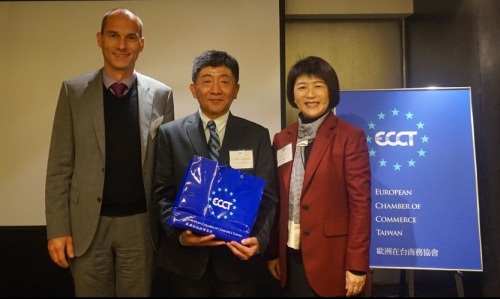New strategy for building a win-win healthcare system

On 1 March 2016 Taiwan marked the 20th anniversary since the establishment of its National Health Insurance (NHI) system. While the system has been praised for its general efficiency and low costs, it has been under increasing strain in recent years, leading to considerable discussion among officials and medical sector professionals about its future.
According to Dr Chen, people over the age of 65 consume 40% of healthcare resources. Given Taiwan's rapidly-aging society, the strain on the healthcare system is likely to worsen in the years to come. Simply raising National Health Insurance (NHI) contributions will not solve the problem.
Another problem is that local community clinics are not being properly utilized, placing too much of a burden on hospitals. This needs to be remedied by putting in place a system to transfer patients to appropriate departments/institutions and enforcing a system whereby patients make better use of general practitioners in their neighbourhoods.
The NHI system has several major problems: medical treatment is becoming like a commodity, the healthcare budget is insufficient, the quality of care is deteriorating and there are rising instances of disputes between patients and hospitals (and a lack of effective ways to deal with disputes). In addition, there is a shortage of qualified nurses, the compensation of medical professionals is inadequate while their workloads are too heavy and there are too many instances of health insurance coverage being cancelled (for failure to pay fees).
To ease the financial problems, the healthcare budget could be adjusted in line with Taiwan's GDP and people could be encouraged to take better care of their health. In this regard Chen also suggested looking at ways to regulate unhealthy food and drinks. To reduce the strain on hospitals, better ways could be developed to make better use of community clinics. In Chen's view, they should be turned into community health care management centres.
Local city governments should also increase their coordination to consolidate and share medical resources more efficiently. To deal with the needs of Taiwan's aging population, Chen suggested establishing a senior health and care research centre. The issues of healthcare costs and compensation for medical professionals need to be adjusted to ensure reasonable but affordable fees for patients and fair compensation for personnel.
To address disputes, a mediation mechanism should be established between hospitals and patients and a reliable system of investigation of medical matters should be set up. To address the issue of misuse of medicines, patients should be responsible for the management of the medicines they take and not be allowed to shop around at hospitals and get as much medicine as they can.
The pricing of medicines is not yet standardized and the administration of medicine is not efficient. There is also a problem of quality consistency before and after medicines enter the market. To remedy this, there needs to be a transparent pricing policy for medicines.
The drug approval process is also too slow and needs to be sped up for medicines that have proven to be effective. Dr Chen also expressed the view that medical professionals should be given a greater say than they currently have in the healthcare policy decision-making process. Finally Chen said he believed that medicine for rare diseases should be covered by the NHI.
